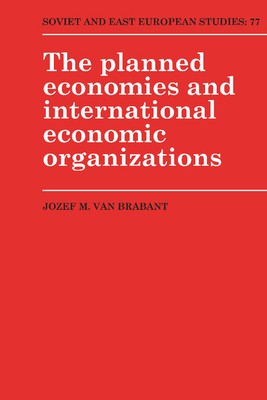
- We will send in 10–14 business days.
- Author: Jozef M Van Brabant
- Publisher: Cambridge University Press
- ISBN-10: 0521383501
- ISBN-13: 9780521383509
- Format: 15.2 x 22.9 x 2.2 cm, hardcover
- Language: English
- SAVE -10% with code: EXTRA
Reviews
Description
This is the first comprehensive study of the role of socialist countries within the international economic order. The author presents an overview of the emergence of the postwar economic order and examines the key features of three kinds of centrally planned economies. He then analyzes the role of financial frameworks and the international trade system in ensuring smooth economic relations among market-type economies and he details the problems of associating typical CPEs within them. Finally Jozef van Brabant explores the possibility of reconstituting a multilateral economic order that can provide greater security, predictability, stability and reliability in international economic relations. The Planned Economies and International Economic Organizations is written at a time when the Soviet Union and other centrally planned economies are seeking closer links with the mainstream world economy. It will therefore be of interest to governments and institutional economists as well as to students and specialists of Soviet and East European studies, international relations and comparative economics.
EXTRA 10 % discount with code: EXTRA
The promotion ends in 20d.02:08:39
The discount code is valid when purchasing from 10 €. Discounts do not stack.
- Author: Jozef M Van Brabant
- Publisher: Cambridge University Press
- ISBN-10: 0521383501
- ISBN-13: 9780521383509
- Format: 15.2 x 22.9 x 2.2 cm, hardcover
- Language: English English
This is the first comprehensive study of the role of socialist countries within the international economic order. The author presents an overview of the emergence of the postwar economic order and examines the key features of three kinds of centrally planned economies. He then analyzes the role of financial frameworks and the international trade system in ensuring smooth economic relations among market-type economies and he details the problems of associating typical CPEs within them. Finally Jozef van Brabant explores the possibility of reconstituting a multilateral economic order that can provide greater security, predictability, stability and reliability in international economic relations. The Planned Economies and International Economic Organizations is written at a time when the Soviet Union and other centrally planned economies are seeking closer links with the mainstream world economy. It will therefore be of interest to governments and institutional economists as well as to students and specialists of Soviet and East European studies, international relations and comparative economics.


Reviews